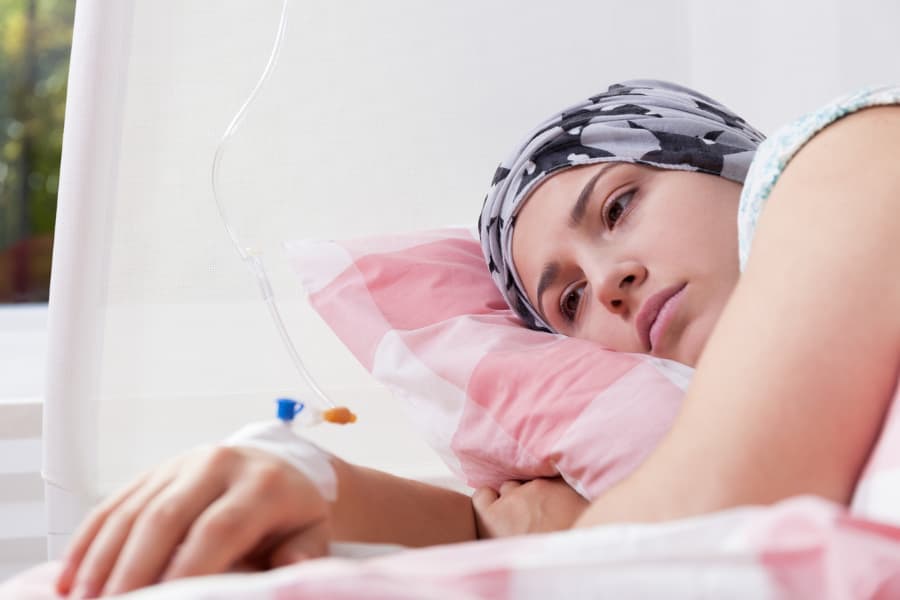Many people with cancer often report feeling tired, worn out, and having low energy. This is known as cancer-related fatigue, which is a condition caused by cancer or cancer treatment. A person with cancer-related fatigue often feels exhausted or extremely tired, making it difficult to complete day-to-day tasks. Here, the oncology team at Richmond University Medical Center in Staten Island further explains what cancer-related fatigue is and offers insight on how to limit its effects.
What Is Cancer-Related Fatigue?
Cancer-related fatigue is one of the most common side effects of cancer and cancer treatment. More than 80% of patients with cancer report feelings of exhaustion while enduring the disease and treatment process.
Cancer fatigue is unlike typical feelings of tiredness. A person without cancer usually feels fatigued after engaging in physical activity. The fatigue typically subdues after resting or sleeping. Conversely, cancer-related fatigue can occur after minimal or no activity and does not completely go away with rest or sleep.
The Causes of Cancer Fatigue
Cancer-related fatigue can be brought on by the cancer itself, especially if the disease is more advanced. In addition to cancer, fatigue associated with the disease can be attributed to several other causes, such as:
Cancer Treatments
Certain cancer treatments are known to cause cancer-related fatigue, including:
- Chemotherapy: In the days following chemotherapy, patients commonly report feelings of exhaustion. Cancer fatigue typically improves before the next treatment.
- Immunotherapy: Cancer-related fatigue can occur at any time during immunotherapy, depending on the type.
- Radiation therapy: Patients with cancer undergoing radiation therapy often experience feelings of fatigue a few weeks after beginning the treatment. Fatigue is generally at its worst near the end of treatment but then improves over the following weeks and months.
- Surgery: Fatigue generally begins immediately following the procedure and improves during the recovery process.
Pain
Patients with cancer often live with pain. This can cause them to get worn out and make them feel tired even without exerting physical energy. Furthermore, pain medications often prescribed to patients might also cause drowsiness and fatigue.
Poor Emotional Health
Cancer takes its toll on a person physically, mentally, and emotionally. Stress, anxiety, and depression can all lead to or make fatigue worse. The feeling of fatigue may also amplify these emotions.
Difficulties Sleeping
Insomnia is a common side effect of cancer. Having trouble falling asleep or staying asleep throughout the night can make patients with cancer feel more tired during the day. Other conditions related to difficulties sleeping, such as sleep apnea and restless leg syndrome, can prevent a patient from getting quality sleep.
Trouble Eating and Drinking
A well-balanced diet is needed to energize the body. People with cancer often do not consume the proper amount of nutrients due to loss of appetite, trouble swallowing, nausea and vomiting, mouth sores, and other common side effects.
Limited Physical Activity
Too much time spent resting and not getting exercise can make patients with cancer feel tired and sluggish.
Cancer Fatigue Symptoms
A person with cancer-related fatigue may experience the following:
- A lack of energy or a desire to stay in bed all day
- Needing to rest even after little or no activity
- Finding it challenging to get up in the morning
- Feeling like they do not want to be bothered
- A loss of interest in doing things once enjoyed
- Negative feelings about self and others
- More tired than usual after finishing a familiar task
- Feeling like arms and legs are too heavy to move
- Trouble thinking clearly or making decisions
- Hard to concentrate, even just having a conversation with someone
- Shortness of breath after performing mundane tasks
- Feelings anxious, sad, depressed, or that they need more sleep
- Pain in muscles
The symptoms associated with cancer-related fatigue can make it difficult for patients to keep up with their work, social life, or daily routine. Cancer fatigue affects every patient differently. Some people may endure mild effects while others may experience more disruptive outcomes.
Treatment and Care at Richmond University Medical Center
Cancer-related fatigue can have a significant impact on a patient’s quality of life. While there’s no single solution to treat cancer fatigue, there are solutions to manage its effects. The team of board-certified medical oncologists and attending physicians at Richmond University Medical Center are committed to providing the highest standard of cancer care.
As a part of our comprehensive approach to treating patients with cancer, Richmond University Medical Center offers resources and education on how to effectively manage cancer-related fatigue. Contact us today for more information about the care we deliver or to schedule an apportionment and meet with the dedicated team in Staten Island.




